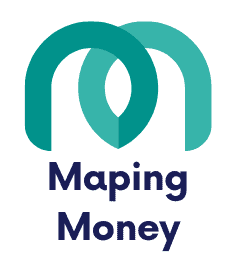10 Essential Strategies for Boosting Savings and Financial Health
To boost your savings and financial health, start by creating a budget to track income and expenses. Build an emergency fund to cover three to six months' living costs. Automate your savings to make contributions effortless and consistent. Increase your retirement contributions, especially to capture employer matches. Focus on reducing high-interest debt to improve overall financial health. Enhance your financial knowledge and explore diversified investment options to maximize growth. Regularly review insurance policies for potential savings. Finally, set clear financial goals and break them into manageable steps to maintain motivation. Discover further strategies to elevate your financial wellness.
Key Takeaways
- Create a budget to track income, expenses, and prioritize financial goals effectively.
- Build an emergency fund of three to six months' living expenses for financial security.
- Automate savings by setting up direct deposits to high-yield accounts for effortless growth.
- Focus on debt reduction by prioritizing high-interest debts and maintaining a low debt-to-income ratio.
- Set clear, measurable financial goals to enhance savings accountability and motivation.
Create a Budget

Creating a budget is one of the most effective steps you can take to improve your financial health. By taking the time to create a budget, you'll gain clarity on your monthly income and how best to allocate it toward essential expenses, savings plans, and discretionary spending. This foundational tool enables you to identify your spending patterns and prioritize financial goals, ultimately leading to greater financial security.
When you categorize your expenses into fixed and variable costs, you can pinpoint areas where you might be overspending. Regularly monitoring your budget fosters disciplined financial habits that help you stick to your cash flow plans. Consider utilizing budgeting apps to simplify tracking; they provide valuable insights that make it easier to maintain your financial objectives.
Establishing a budget not only puts you in control of your finances but also greatly reduces financial stress. With a clear plan in place, you can avoid the pitfalls of debt accumulation and feel empowered to make informed decisions. So, take that essential step today—create a budget and pave the way toward achieving your financial freedom.
Build an Emergency Fund

Building an emergency fund is an essential step in solidifying your financial health after establishing a budget. This fund acts as a safety net, ideally containing three to six months' worth of living expenses to cover unexpected financial challenges like medical emergencies or job loss. Start with an initial goal of $1,000, which can buffer minor surprises.
To effectively build your emergency fund, consider these strategies:
- Open a dedicated high-yield savings account to maximize interest earnings.
- Automate transfers from your checking to your savings account to guarantee consistent contributions.
- Regularly reassess your fund size based on changing income and expenses.
- Set clear financial goals that align with your monthly expenses and lifestyle.
- Keep track of significant life events that may require adjusting your target amount.
Automate Your Savings

Automating your savings can transform the way you manage your finances, making it easier to reach your financial goals. By setting up direct deposits from your paycheck into a high-yield savings account, you effectively eliminate the temptation to spend, fostering healthier financial habits. Research shows that individuals who automate their savings are 33% more likely to achieve their savings goals, emphasizing the effectiveness of this strategy.
Using the "pay yourself first" approach, you prioritize savings before expenses, ensuring that you're consistently building wealth. Many financial institutions let you schedule regular transfers to high-yield savings accounts, maximizing your interest earnings while minimizing your effort.
You can enhance your financial health further by implementing incremental increases in your automated contributions—raising your savings by just 1-2% annually can lead to significant compound growth over time. This method not only simplifies your financial management but also paves the way for a more secure financial well-being. So, take the leap today: automate your savings and watch your financial landscape shift toward the freedom you desire.
Increase Retirement Contributions

While automating your savings lays a strong foundation for financial stability, increasing your retirement contributions can markedly accelerate your path to a comfortable retirement. By boosting your contributions by just 1-2% annually, you can greatly enhance your retirement savings over time through the power of compound interest. For instance, if you start at 6% and ramp up to 15% by age 65, you could save roughly 12 times your final salary.
Here are some key strategies to ponder:
- Maximize employer matching: Take advantage of free money from your employer's retirement plan.
- Utilize automated contributions: Set it and forget it to simplify your savings strategy.
- Reassess regularly: Align your contributions with salary increases and life changes.
- Stay informed about inflation: Adjust contributions to keep pace with rising costs.
- Focus on financial wellness: Prioritize your financial future and independence.
Focus on Debt Reduction

When it comes to achieving financial health, focusing on debt reduction is essential. Start by prioritizing high-interest debt repayment; tackling debts with rates above 20% can considerably lessen the overall interest you pay and accelerate your financial recovery. Implement the debt snowball method by clearing smaller debts first, which can boost your motivation and create momentum for addressing larger obligations.
Maintaining a healthy debt-to-income ratio of 36% or lower is key to enhancing your creditworthiness. Consider debt consolidation options to simplify payments and potentially lower interest rates, making debt repayment more manageable. Regularly review and adjust your budget to allocate extra funds toward eliminating outstanding balances.
Here's a quick overview of the impact of different debt strategies:
| Strategy | Emotional Impact | Financial Benefit |
|---|---|---|
| High-Interest Focus | Reduces stress | Lowers overall interest |
| Debt Snowball | Builds confidence | Increases repayment speed |
| Debt Consolidation | Simplifies payments | Lowers monthly payments |
Track Your Spending

How well do you really know where your money goes each month? To achieve increased savings and meet your financial goals, it's essential to track your spending meticulously. Regularly monitoring your expenses doesn't just keep you accountable; it allows you to adjust your budget in real-time, ensuring alignment with your saving targets.
Consider these strategies to enhance your financial awareness and money management:
- Utilize budgeting apps for streamlined tracking.
- Categorize expenses to identify areas for cuts.
- Set aside time each week to review your spending.
- Analyze spending patterns to improve financial habits.
- Celebrate small wins to stay motivated.
Studies reveal that consumers who actively track their spending are 20-30% more likely to stick to their budgets. By prioritizing this practice, you reinforce disciplined financial habits that pave the way for long-term freedom. Embracing a clear view of your financial landscape empowers you to make informed decisions, ultimately leading to a healthier financial future. Start today, and transform your financial well-being through the simple act of tracking your spending!
Enhance Your Financial Knowledge

Enhancing your financial knowledge is vital for achieving long-term savings and stability. By improving your financial literacy, you can positively impact your savings behavior. Studies show that individuals who engage in financial education save 20% more than those who don't. Understanding the nuances between fixed and variable expenses enables you to create a more accurate budget, enhancing your financial management skills.
Regularly reviewing your credit scores is another significant aspect of financial health. A higher credit score can lower interest rates on loans, saving you thousands over time. Familiarizing yourself with savings vehicles like high-yield savings accounts and money market accounts can also lead to better returns on your savings compared to traditional accounts.
Utilizing free online resources and attending financial workshops can deepen your understanding of investment strategies. This knowledge empowers you to make informed decisions that contribute to your long-term financial stability. Additionally, having emergency savings guarantees you're prepared for unexpected expenses, providing peace of mind. By committing to enhancing your financial knowledge, you're not just saving money; you're paving the way for a more secure and liberated financial future.
Explore Investment Options

Exploring investment options is an essential step in building your financial future. By understanding various avenues for investment, you're taking control of your savings and paving the way for long-term financial health. A diversified portfolio that includes stocks, bonds, and real estate can mitigate risks while enhancing growth potential. Historically, the stock market has provided an average return of 7-10% annually, making it a valuable component for wealth accumulation.
Consider these strategies to maximize your investment outcomes:
- Engage in dollar-cost averaging to reduce volatility impact.
- Utilize tax-advantaged accounts like IRAs and 401(k)s for retirement savings.
- Regularly review your investment strategy aligned with your financial goals.
- Diversify your portfolio to spread risk across various assets.
- Invest consistently to build long-term savings effectively.
Review Insurance Policies

When it comes to maintaining your financial health, regularly reviewing your insurance policies is crucial. This process can help you identify potential savings and align your coverage with your current financial needs. For instance, bundling options might lead to discounts of up to 25% on your premiums. Additionally, evaluating your coverage limits and deductibles guarantees you're not overpaying for unnecessary coverage.
Here's a quick overview of what to contemplate during your review:
| Factor | Considerations |
|---|---|
| Coverage Options | Are your current policies adequate for life changes? |
| Discounts | Can bundling policies save you money? |
| Switching Providers | Are there better rates available? |
| Savings Potential | Could shopping around save you an average of $300 annually on auto insurance? |
Major life events, such as marriage or buying a home, should trigger a review of your insurance policies. Utilizing comparison tools and online calculators can empower you to make informed decisions, guaranteeing that your insurance reflects your financial position and supports your goal of boosting savings.
Set Clear Financial Goals

Setting clear financial goals is essential for charting your path to financial stability and growth. By defining specific, measurable targets, like saving $10,000 for a home down payment within five years, you create direction and motivation for your savings efforts. A financial planner can help you set these goals using the SMART criteria—Specific, Measurable, Achievable, Relevant, and Time-Bound—ensuring they're realistic and attainable.
To effectively set clear financial goals, consider the following:
- Break down larger goals into smaller, manageable milestones.
- Save a specific amount monthly to build your emergency fund to cover three to six months' expenses.
- Regularly review and adjust your retirement planning contributions, aiming for a 1-2% increase annually.
- Write down your financial goals and track your progress for increased accountability.
- Use savings accounts strategically to maximize interest and compound growth.







